Summer is a time for sunshine, adventure, and outdoor fun, but it also brings its fair share of challenges, sunburns, insect bites, rashes, and heat exhaustion. Instead of reaching for chemical-laden treatments, why not turn to nature’s pharmacy?
A well-stocked summer first aid kit filled with natural remedies can help you soothe burns, fight infections, and ease discomfort without harmful side effects.
In this guide, we’ll explore 10 powerful herbal remedies backed by science to keep you and your family safe and comfortable all summer long. From cooling teas to soothing salves, these remedies are simple, effective, and easy to use.
10 Best Herbal Remedies for Your Summer First Aid Kit
1. Aloe Vera for Sunburns
Aloe vera is one of the best natural remedies for soothing sunburned skin. This succulent plant is loaded with antioxidants, enzymes, and vitamins A and C, all of which help reduce inflammation, support skin healing, and provide a cooling sensation.
Its gel-like consistency creates a protective layer over the skin, keeping it hydrated while allowing burns to heal faster.
How to Use:
To treat a sunburn, apply fresh aloe vera gel directly to the affected area. For extra relief, store the gel in the refrigerator for an hour before applying it; this will enhance its cooling effect and further reduce redness and discomfort.
Pro Tip:
If you want to boost its healing power, mix aloe vera with a few drops of lavender essential oil, which has additional anti-inflammatory and skin-repairing properties.
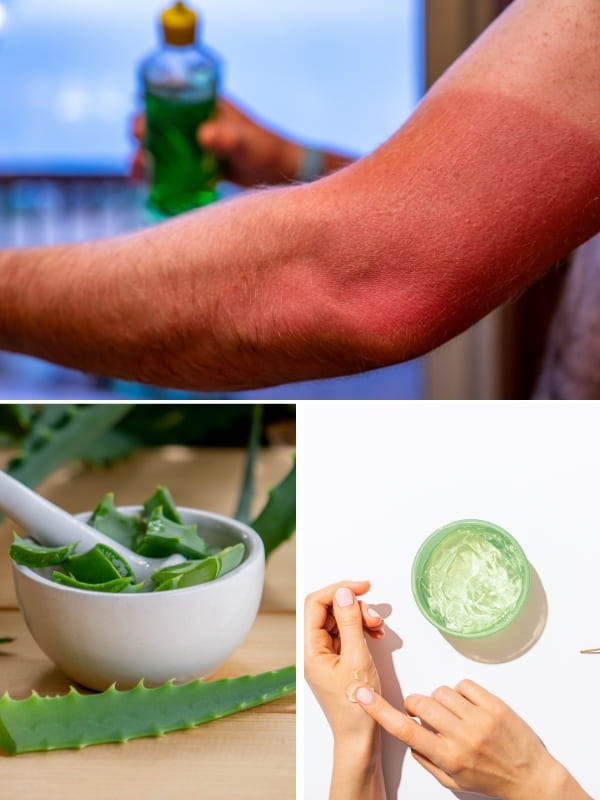
2. Chamomile for Rashes and Skin Irritations
Chamomile is well known for its calming properties, but it also works wonders for soothing rashes, itchy skin, and minor irritations.
The flower contains apigenin, a powerful antioxidant that reduces redness, swelling, and itching. It’s particularly beneficial for conditions like eczema, hives, and heat rashes that tend to flare up in the summer.
How to Use:
To use chamomile for skin relief, brew a strong cup of chamomile tea and let it cool completely. Soak a cotton pad in the tea and gently dab it onto the affected areas.
For a more intensive treatment, mix chamomile essential oil with coconut oil and apply it to irritated skin.
Pro Tip:
Adding a few chamomile tea bags to a cool bath can provide full-body relief, making it a great option for sun-stressed or allergy-prone skin.
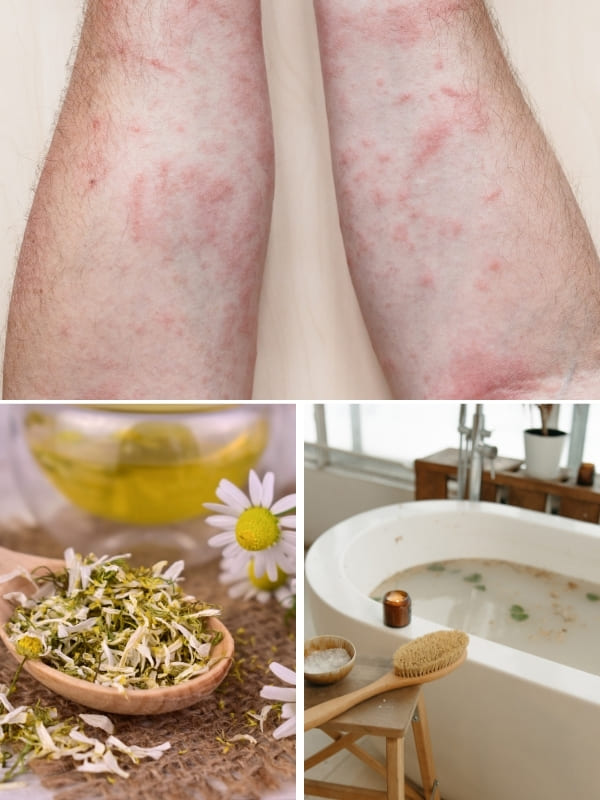
3. Ginger Tea for Nausea and Motion Sickness
Summer road trips and boat rides can be exciting, but they often bring an unwelcome companion – motion sickness.
Ginger has been used for centuries to combat nausea, thanks to its active compound gingerol, which helps settle the stomach and improve digestion. It’s a go-to remedy for everything from morning sickness to post-surgery nausea.
How to Use:
To make ginger tea, slice a one-inch piece of fresh ginger and steep it in hot water for 10 minutes. Sip the tea slowly to ease nausea and dizziness.
Pro Tip:
If you’re traveling, homemade ginger chews or ginger capsules can provide quick relief without the need for brewing tea. You can also add a pinch of lemon juice and honey to your tea for extra digestive support.
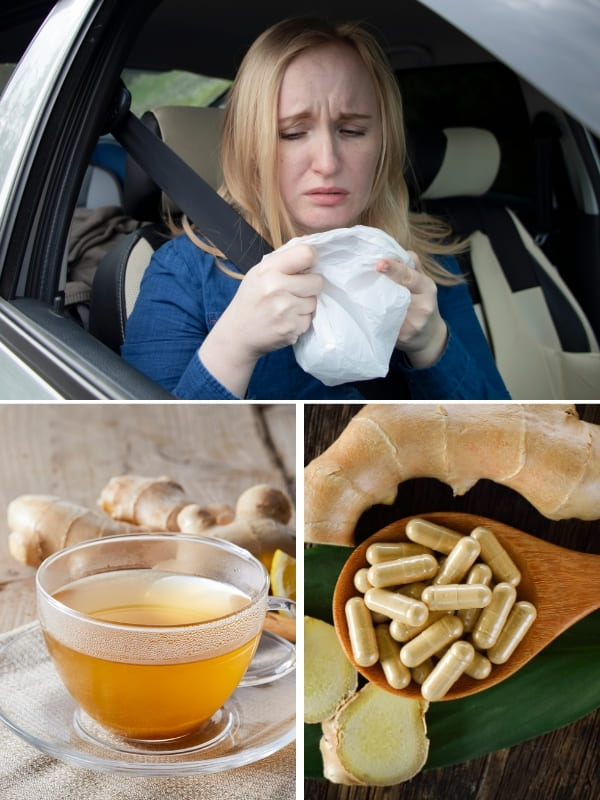
4. Echinacea for Tick Bites
Echinacea is best known as an immune-boosting herb, but it also has antibacterial and anti-inflammatory properties that make it an excellent remedy for tick bites.
It helps prevent infections and reduces swelling, making it a valuable addition to your summer herbal toolkit.
How to Use:
After a tick bite, drink echinacea tea three times a day for at least two to three days to support immune function.
While echinacea can help reduce infection risk, tick bites should always be monitored for any signs of Lyme disease, such as a bullseye-shaped rash or flu-like symptoms.
Pro Tip:
You can also mix echinacea extract with calendula tea and apply it to the bite site to enhance antibacterial effects.
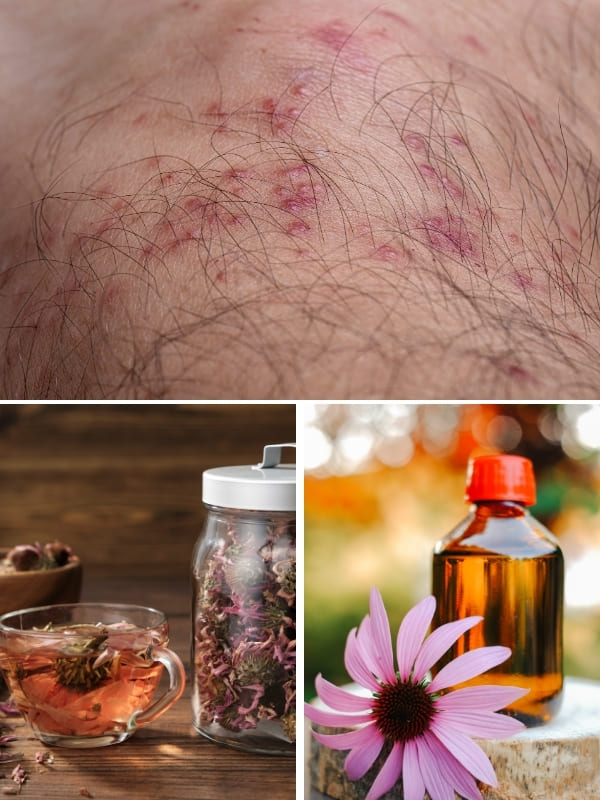
5. Elderberry Syrup for Summer Colds
Despite the warm weather, summer colds are surprisingly common, especially after travel or exposure to air conditioning. Elderberries are packed with flavonoids that strengthen the immune system and help fight viral infections.
How to Use:
Taking one teaspoon of elderberry syrup daily can help prevent colds, while increasing the dosage to three times daily can speed up recovery if you’re already sick.
Pro Tip:
Pairing elderberry syrup with echinacea tea can enhance immune support, making it easier to fight off seasonal viruses.
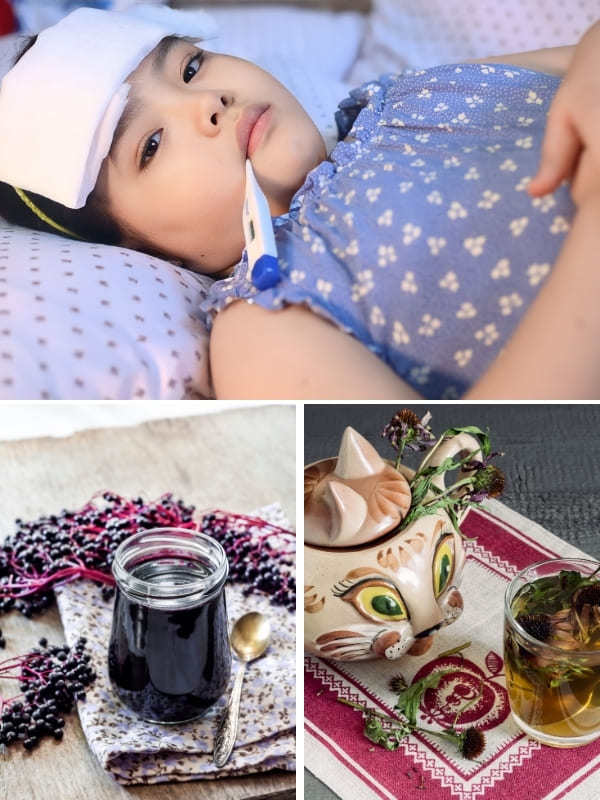
6. Lavender Oil for Bruises
Lavender isn’t just for relaxation. It’s also a powerful remedy for bruises. It contains linalool and linalyl acetate, two compounds that reduce swelling, soothe pain, and promote skin healing.
Applying lavender oil to bruises can help speed up the healing process while minimizing discoloration.
How to Use:
To use, mix five drops of lavender essential oil with one tablespoon of coconut oil and gently massage it onto the bruise.
Pro Tip:
For best results, apply a cold compress immediately after the injury, then follow up with lavender oil to help break up pooled blood and reduce inflammation.
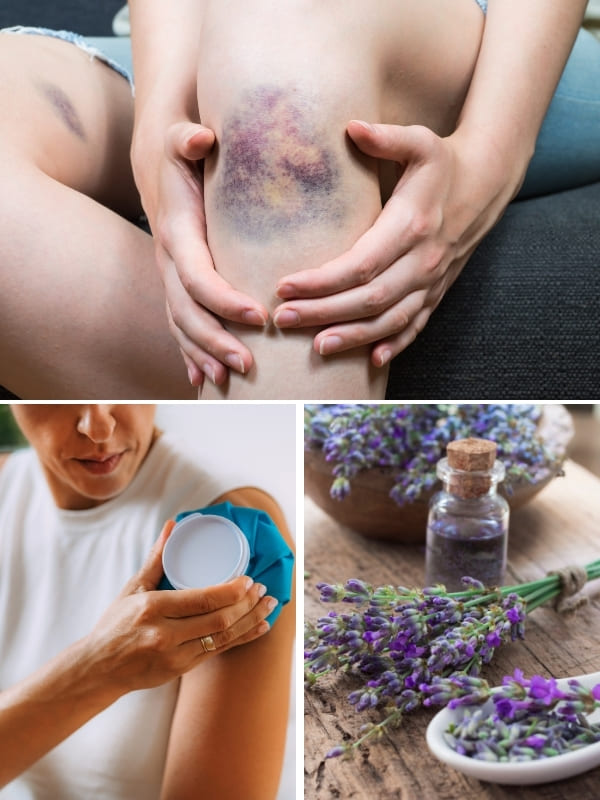
7. Hibiscus Tea for Heat Exhaustion
Hot summer days can lead to dehydration and heat exhaustion, which can cause dizziness, fatigue, and headaches.
Hibiscus tea is a refreshing and hydrating solution, rich in antioxidants and natural electrolytes that help cool the body and restore lost minerals.
How to Use:
Brew hibiscus tea and let it cool before drinking. Sipping it throughout the day can help maintain hydration levels, especially in high temperatures.
Pro Tip:
Adding a pinch of pink Himalayan salt enhances its mineral content, making it an even better remedy for replenishing electrolytes.
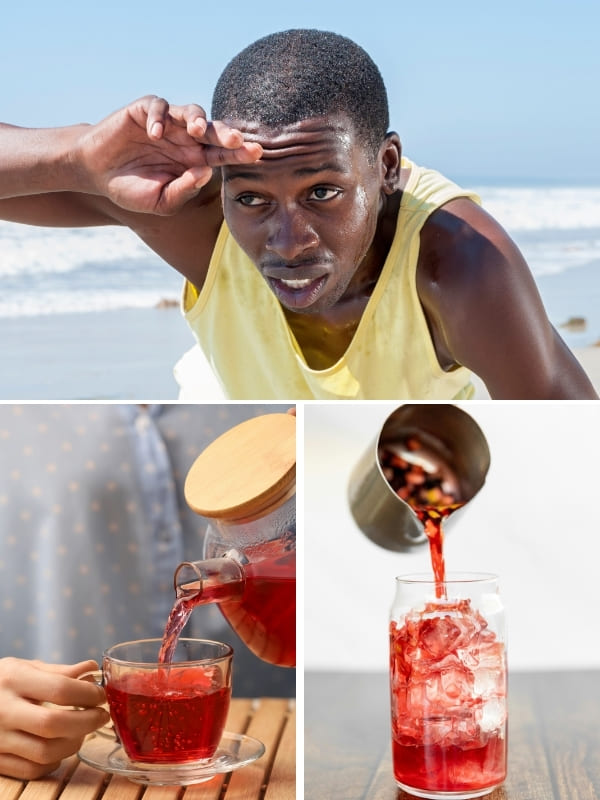
8. Plantain for Bug Bites
Plantain leaves are a natural antihistamine, making them an effective remedy for insect bites and stings. They help reduce itching, swelling, and inflammation, providing quick relief from mosquito bites, bee stings, and even poison ivy.
How to Use:
To use, crush fresh plantain leaves and apply the juice directly to the bite.
Pro Tip:
If you need longer-lasting relief, make a plantain poultice by mashing the leaves into a paste and securing it with a bandage. This will keep the plant’s healing compounds in contact with the skin for extended relief.
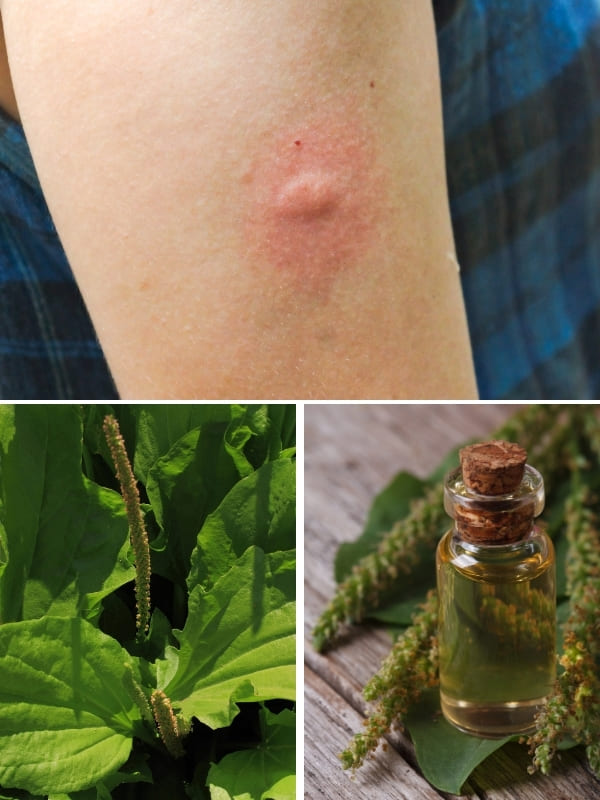
9. Calendula for Cuts and Scrapes
Calendula is a powerful antimicrobial and skin-healing herb that is perfect for treating minor wounds. It helps prevent infections, reduces inflammation, and promotes faster healing, making it a must-have for any natural first aid kit.
How to Use:
To treat cuts and scrapes, apply a calendula salve directly to the wound. Alternatively, steep dried calendula flowers in boiling water, let the tea cool and use it as a gentle wash to cleanse the area.
Pro Tip:
Mixing calendula with raw honey creates a powerful antibacterial remedy that can help wounds heal even faster.
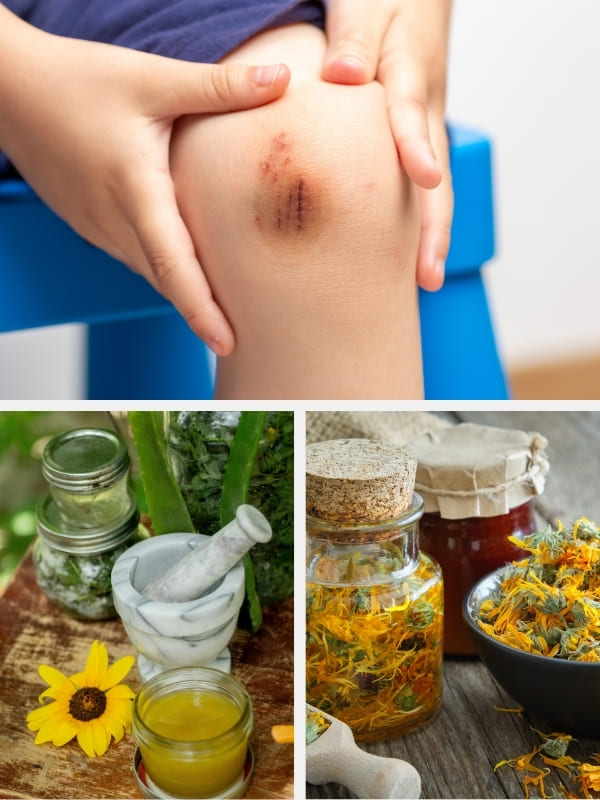
10. Mullein and Garlic for Ear Infections
Ear infections can be common in summer, especially after swimming. Mullein and garlic are both known for their antibacterial and pain-relieving properties, making them a great natural remedy for ear discomfort.
How to Use:
Mix mullein and garlic-infused oil and place a few drops into the affected ear. The oil helps soothe inflammation and fight infection naturally.
Pro Tip:
Applying a warm compress over the ear can provide additional comfort and help relieve pressure.
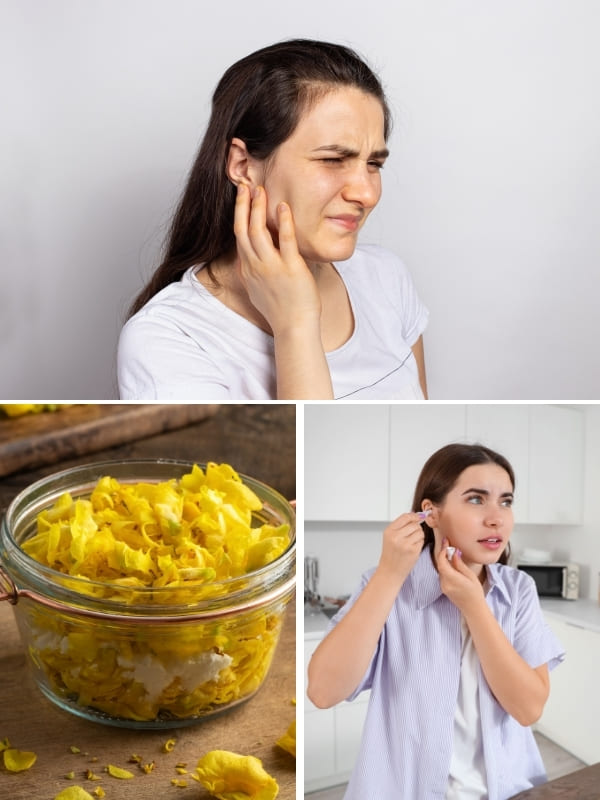
How to Use Your Herbal First Aid Kit
-
Pack Smart: Keep small glass jars or dropper bottles filled with essential remedies in your travel bag.
-
Be Prepared: Brew teas in advance and store them in a thermos for all-day hydration.
-
Customize Your Kit: Tailor your first aid essentials based on your travel plans and activities.
-
Stay Hydrated: Pair herbal remedies with plenty of water to maximize their benefits.
Cautions and Precautions
Always perform a patch test before applying herbal remedies to the skin. Consult a doctor before using herbal treatments if you are pregnant, nursing, or on medication.
Excessive use of certain herbs, such as ginger or echinacea, may cause digestive upset or interact with medications.
Disclaimer
This article is for informational purposes only and is not intended to replace professional medical advice. Always consult a healthcare provider before using herbal remedies, especially if you have underlying health conditions.
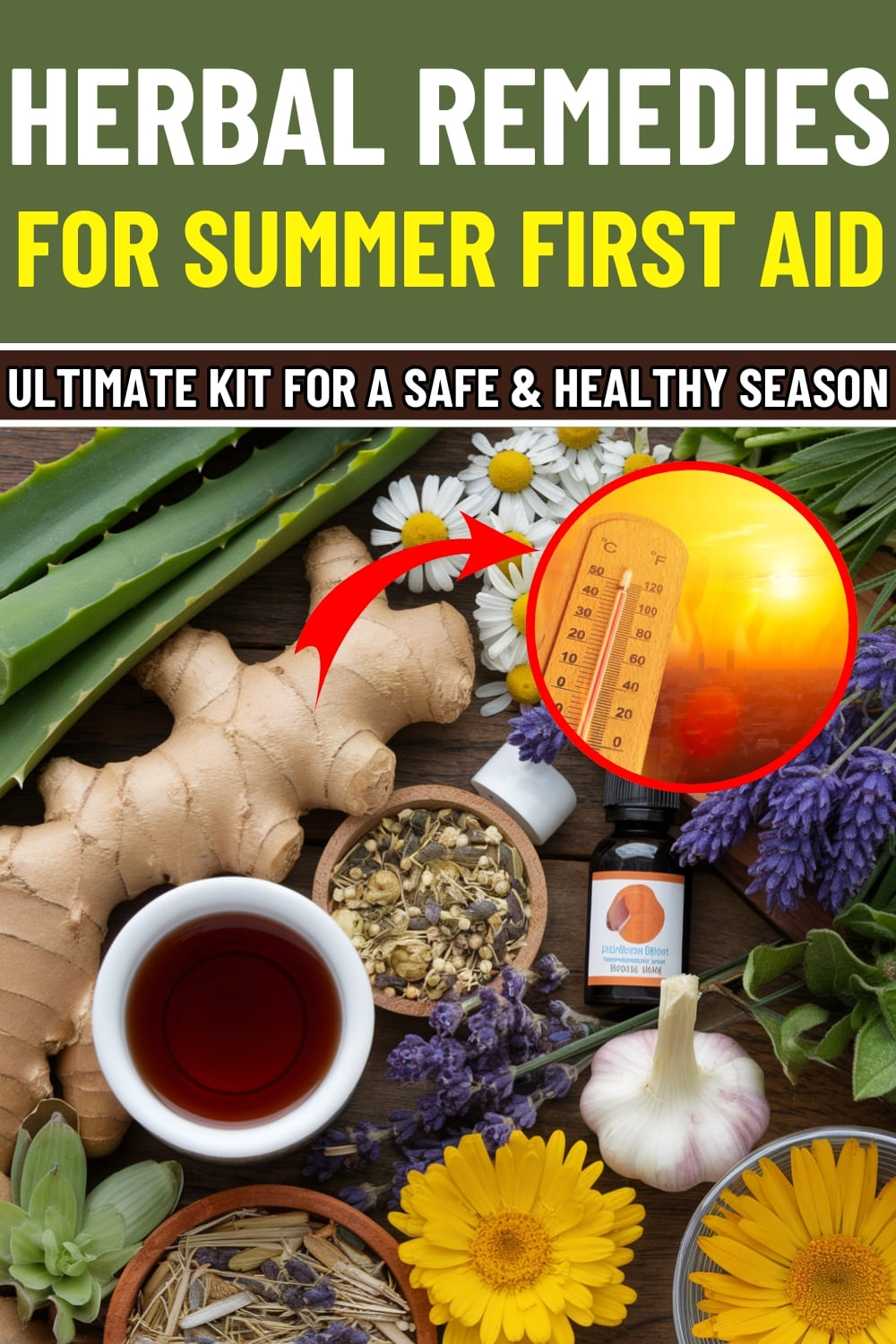
Your Ultimate Summer First Aid Kit: 10 Herbal Remedies for a Safe and Healthy Season
